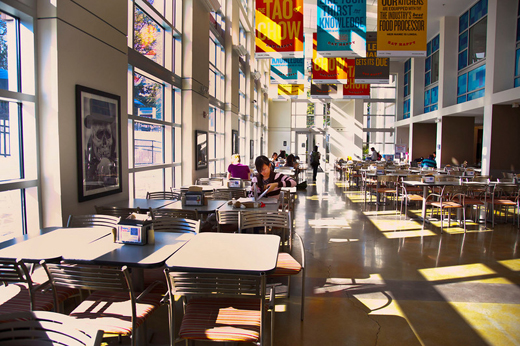Styrofoam may live on practically forever in landfills but its days are numbered at Emory with several new initiatives targeted at eliminating Styrofoam products from campus.
Styrofoam is not biodegradable and studies have shown that it takes many years in a landfill for foam items, such as coffee cups, to completely break down. According to the Environmental Protection Agency, the production of polystyrene products like Styrofoam packaging also releases volatile organic compounds (VOCs), which contribute to the formation of smog.
To help reduce Styrofoam’s environmental impact, the Emory Procurement Office is now working with suppliers to remove Styrofoam as an option for purchase on campus, says Ciannat Howett, director of the university's sustainability initiatives.
Emory’s contracted coffee and tea service providers will no longer accept orders for Styrofoam cups as a part of their beverage service to Emory customers. Staples Advantage, Emory’s contracted supplier of office products, has also eliminated all Styrofoam products as an ordering option.
In addition to participation from external suppliers, Emory’s in-house caterer, Emory Catering, has used compostable alternatives to Styrofoam products for campus events for more than five years. The campus community is encouraged to use reusable cups whenever possible and non-Styrofoam cups when a disposable option is necessary.
The move is part of an effort to support Emory’s goal of diverting 65 percent of its waste from landfills.
"Holiday Turndown" shows results
The elimination of Styrofoam is only one of several recent sustainability initiatives aimed at reducing the University’s environmental impact.
During the winter break this year, the temperature in unoccupied spaces of Emory’s participating buildings was lowered to 55 degrees for six days throughout the holiday season. More than 27 buildings participated in the turndown this year, saving $48,000 in utility costs.
Additionally, the turndown decreased Emory’s carbon footprint by 490 tons of carbon emissions, equivalent to taking 92 passenger cars off the road for one year. "This action is among the most significant ways Emory can cut unnecessary energy consumption and puts the university closer to the goal of decreasing energy consumption by 25 percent per square foot by 2015," says Howett.

